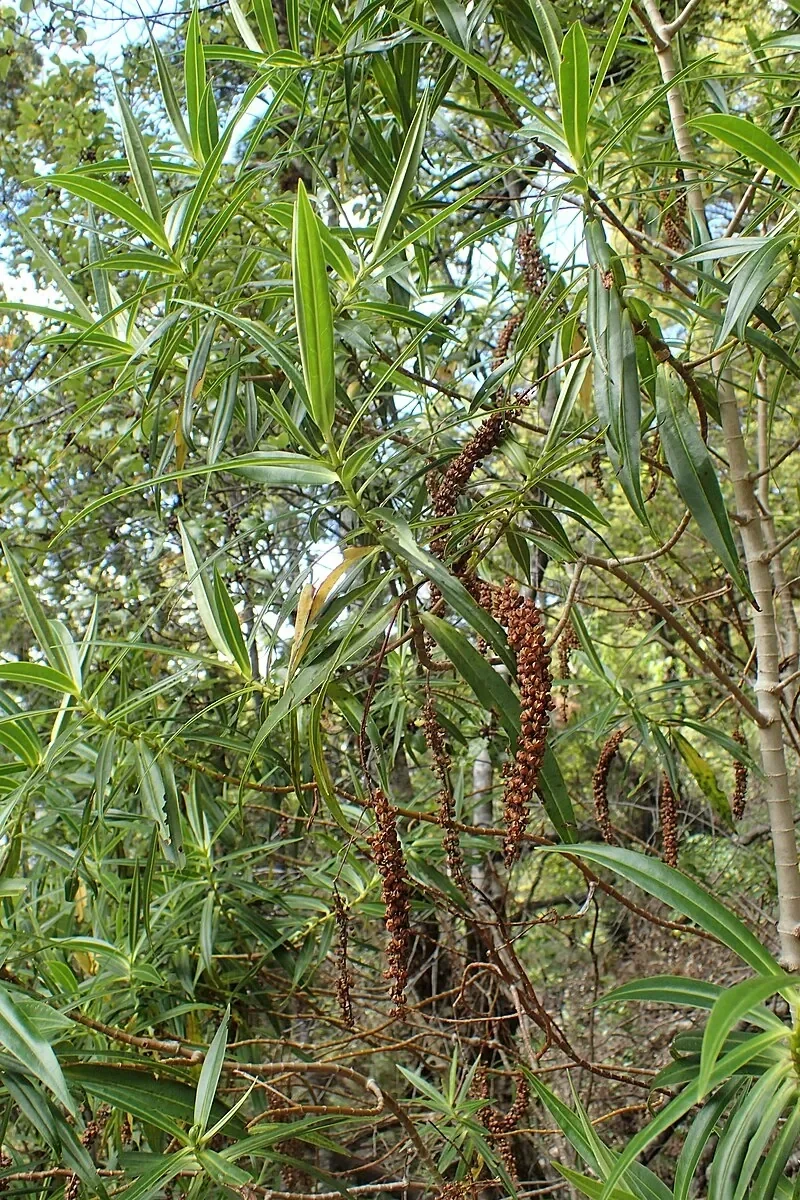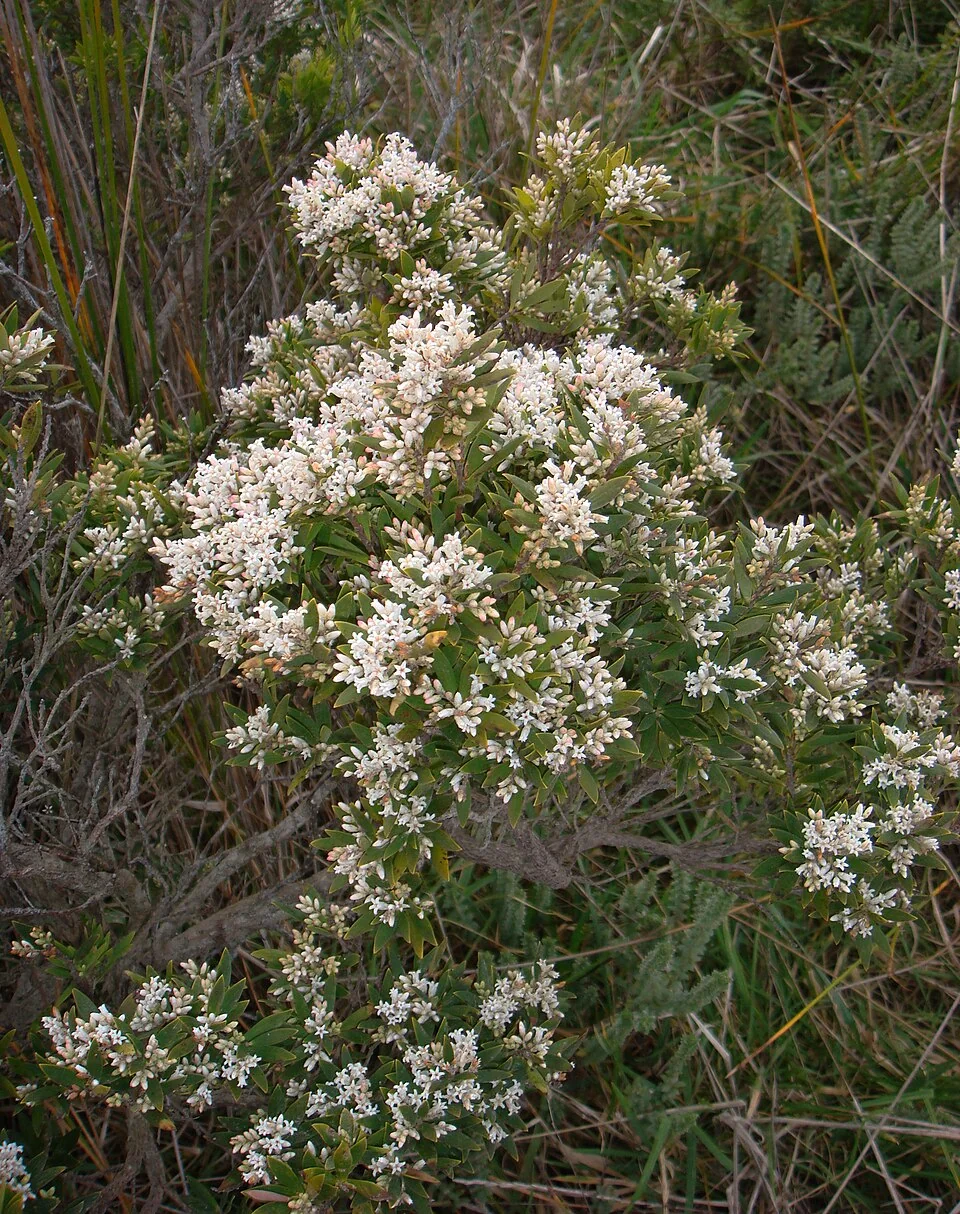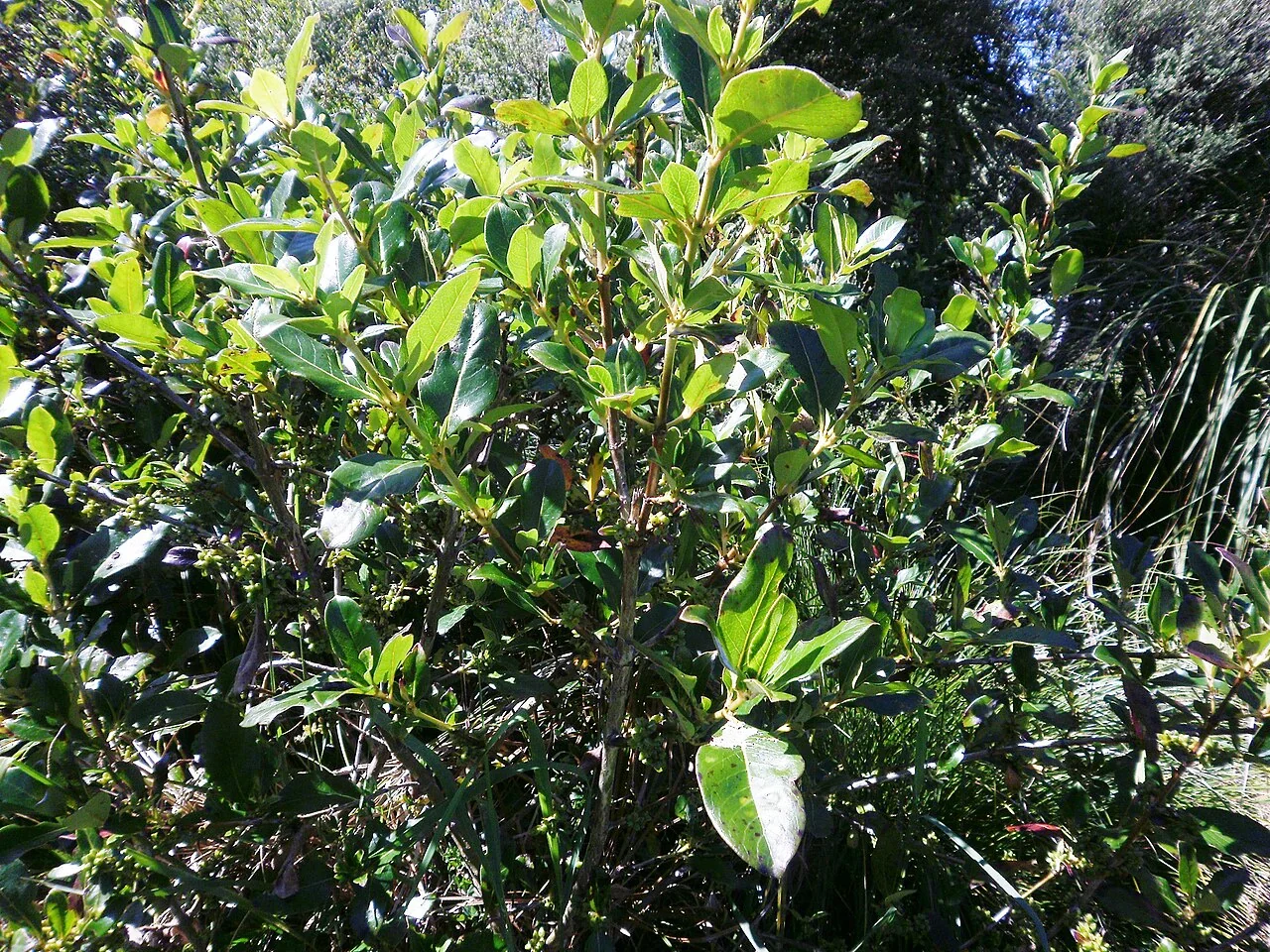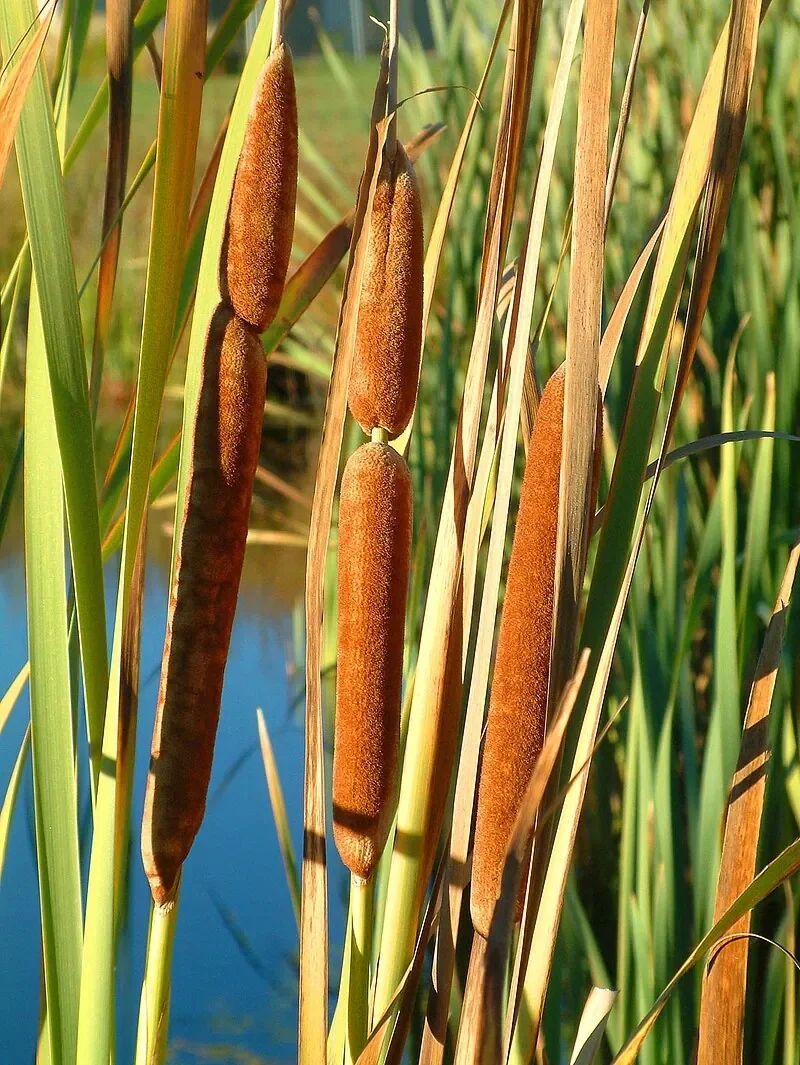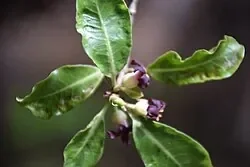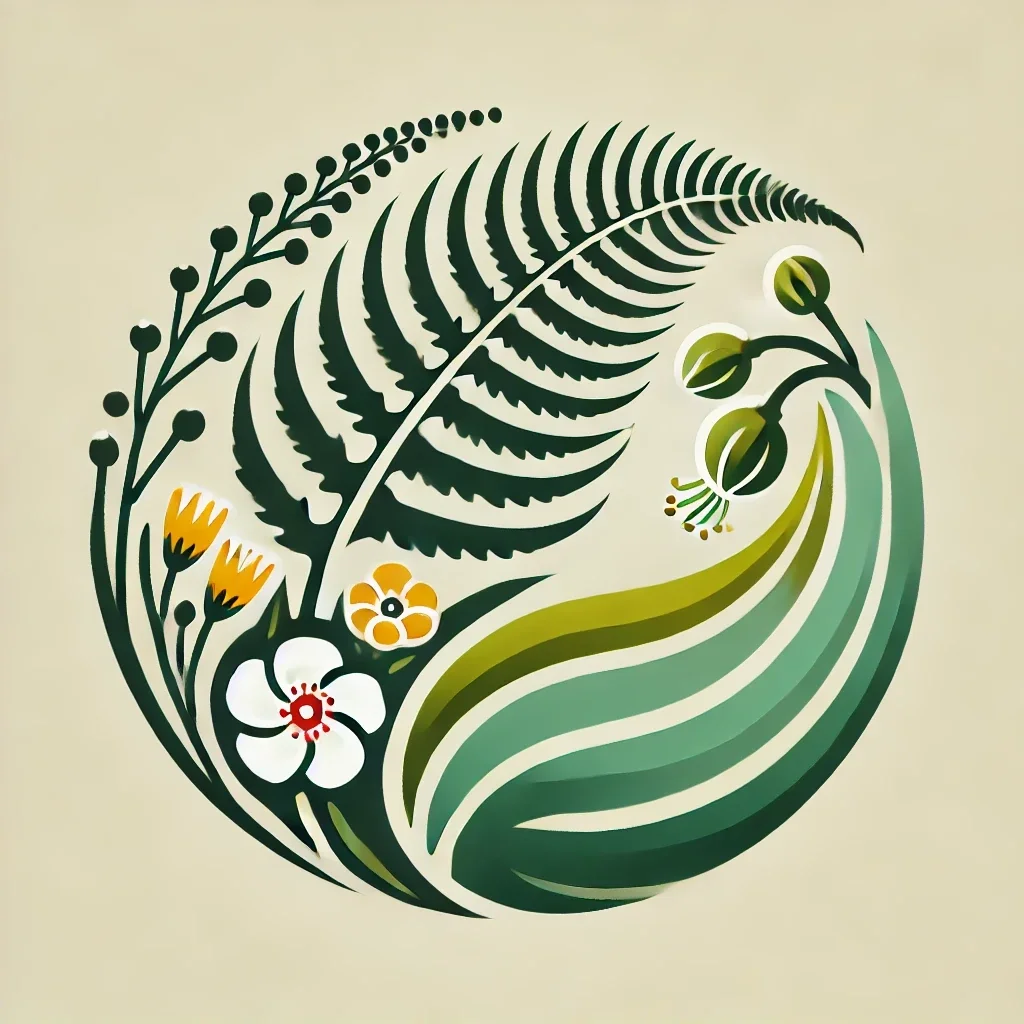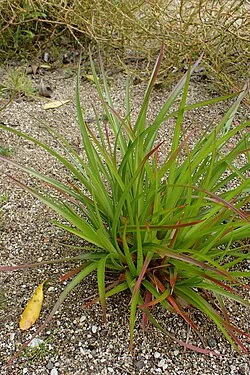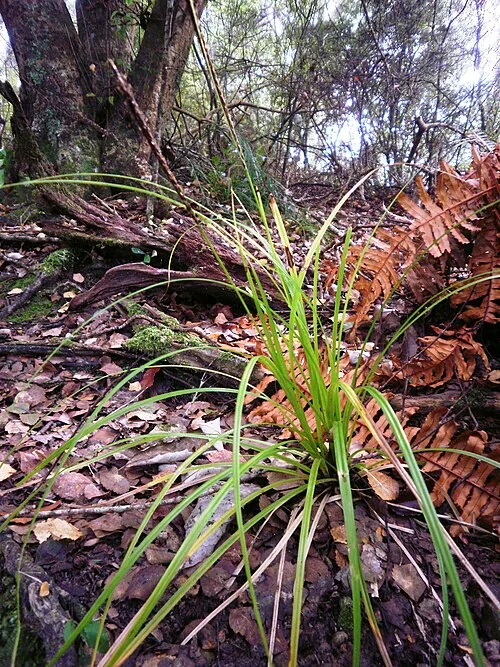
Hook Sedge
Uncinia uncinata
This native plant, known as Hook Sedge(scientific name: Uncinia uncinata ), is a remarkable species endemic to New Zealand. It is characterized by its unique features, ecological role, and cultural significance. This comprehensive guide provides detailed information on its care, propagation, and importance within the New Zealand ecosystem. Understanding this plant contributes to the appreciation of our rich biodiversity and heritage, and supports conservation efforts for Browse All .

Plant Description
Identification and Physical Characteristics
Hook Sedge ( Uncinia uncinata ), commonly known as Kamu, Red Hook Sedge, or Red New Zealand sedge, is an ornamental grass-like perennial native to New Zealand Discover more about native trees. It forms compact mounds or arching tussocks of fine, grass-like foliage. The colour of its leaves is a prominent feature, varying from yellow-green to dark green when grown in shade, and intensifying to reddish-brown, mahogany, or brilliant orange-red in full sun or cooler winter temperatures. Juvenile foliage often displays deeper red shades. This sedge typically grows to a height of 30 to 50 cm and a width of 30 to 75 cm. It produces inconspicuous, dark brown flowers in narrow spikes during mid to late summer, with male flowers at the top and female flowers below. It thrives in full sun to partial shade and prefers moist, well-drained, humus-rich soil. It is adaptable to various soil types, from damp to moderately dry, and is tolerant of wind and coastal conditions. Once established, it is moderately drought-tolerant but prefers consistent moisture. It is generally hardy to about -10°C, though severe frosts may require protection. The genus Uncinia is characterized by "hooks" on its fruit, which aid in seed dispersal by attaching to animals. Uncinia uncinata is particularly variable, distinguished by the number of female flowers (35-180) and the length of its spikes (55-200 mm), with typically deciduous glumes.
Quick Facts
| Scientific Name | Uncinia uncinata |
|---|---|
| Height | 30 - 50 cm |
| Spread | 30 - 50 cm |
| Water Needs | Moderate; prefers moist, well-drained soil |
| Light | Full sun to partial shade |
| Frost Tolerance | High |
| Salt Tolerance | Low to moderate |
| Growth Rate | Moderate |
| Lifespan | Perennial |
Climate Best Suited to
Uncinia uncinata is well adapted to various New Zealand regions.
Regional Suitability
| City | Climate Suitability |
|---|---|
| Auckland | High |
| Wellington | High |
| Christchurch | Medium |
Plant Habitat
Natural Occurrence and Ecology
Hook Sedge ( Uncinia uncinata ), also known as Kamu, Red Hook Sedge, or Red New Zealand sedge, is an ornamental grass-like perennial native to New Zealand (including the Antipodes, North, South, Stewart, Chatham, and Auckland Islands), the Society Islands, and Hawaii.Diverse Indigenous Habitats:Its natural habitat ranges from coastal areas up to 1000 meters above sea level. It is commonly found in various indigenous habitats, including dense forests, open shrublands, and sometimes on the margins of wetlands.Disturbed Areas:It can also be found as an urban weed in hedgerows, along river banks, or in parks, showcasing its adaptability to disturbed environments.Cool, Moist Environments:For cultivation, it thrives in cool, moist environments with well-drained, humus-rich soil.Light:It tolerates full sun to partial shade. Brighter conditions often intensify its foliage colour, particularly in cooler climates.Soil:It is adaptable to various soil types, from damp to moderately dry, and prefers moist, well-drained, humus-rich soil.The widespread distribution and adaptability of Uncinia uncinata underscore its ecological importance in contributing to the biodiversity and structural complexity of New Zealand's natural landscapes.
Growing Requirements
Soil Requirements
Prefers well-draining soil rich in organic matter.
- Well-drained
- Loamy
Light Requirements
Grows best in partial to full sun.
- Full Sun
- Partial Shade
Water Requirements
Requires regular watering during dry periods.
- Regular
- Drought tolerant once established
Planting and Establishing
Establishment Guidance
Plant Uncinia uncinata in a hole twice the width of the root ball.
Proper establishment is key to long-term success. Ensure the planting hole is twice as wide as the root ball and backfill with a mix of native soil and organic compost. Initial watering should be thorough, followed by regular monitoring during the first two growing seasons to ensure the plant becomes well-anchored and resilient to local climate fluctuations.
Ecological Role
Biodiversity and Ecosystem Impact
Provides habitat and food for native fauna.
This species plays a vital role in its local ecosystem, providing essential habitat and food sources for native biodiversity. Its presence supports complex ecological interactions, contributing to the overall health and stability of the environment. By planting this native, you help maintain the intricate web of life that defines New Zealand's unique natural heritage.
Uses & Significance
Garden Uses
Ideal for rock gardens and native borders.
- Rock gardens
- Ground cover
Ecological Value
Supports local pollinators.
- Birds
- Insects
The versatility of this plant makes it a valuable addition to many New Zealand gardens. Beyond its aesthetic appeal, it offers practical benefits such as soil stabilization and shelter for smaller plants. Its historical and modern uses highlight its enduring importance in both traditional practices and contemporary landscape design, making it a thoughtful choice for any restoration or gardening project.
Landscaping Uses
Adds texture and form to modern landscapes.
In a landscape setting, this plant provides excellent structure and year-round interest. Its unique form and foliage can be used to create focal points or as a cohesive element in a larger native planting scheme. It pairs well with other New Zealand natives, allowing for the creation of diverse and resilient garden environments that reflect the natural beauty of Aotearoa.
Seasonal Care Calendar
Spring
Mulch and apply balanced fertilizer.
- Fertilize
- Mulch
Summer
Water deeply during dry spells.
- Water
- Check for pests
Autumn
Tidy up any dead foliage.
- Prune lightly
- Plant new specimens
Winter
Protect from heavy frosts if necessary.
- Frost protection
When to Prune and How Much
Minimal pruning required to maintain shape.
- Remove dead branches
Always use clean, sharp tools.
Regular maintenance through careful pruning ensures the plant remains healthy and maintains its desired shape. Focus on removing dead or diseased wood to promote better air circulation and prevent the spread of pathogens. Proper pruning techniques help the plant direct its energy toward new growth, resulting in a more robust and aesthetically pleasing specimen in your garden.
How to Grow Hook Sedge
Cultivating Uncinia uncinata ( Uncinia uncinata ) is a rewarding endeavor for any gardener interested in New Zealand's unique flora. This species can be propagated through several methods, each requiring specific conditions to ensure healthy growth and establishment. Successful propagation depends on mimicking the plant's natural environment and providing consistent care during the early stages of development.
From Seed
Propagation from seed is often the most effective way to produce a large number of Uncinia Uncinata plants. Seeds should be collected when they are fully mature. Freshly collected seeds generally have higher germination rates than those that have been stored for long periods.
Sow fresh seeds in a seed-raising mix.
- Collect seeds
- Sow in trays
Keep moist until germination.
From Cuttings
For those wishing to replicate specific characteristics of a parent plant, vegetative propagation via cuttings is the preferred method. This technique ensures that the new plants are genetically identical to the source. Semi-hardwood cuttings taken during the appropriate season usually yield the best results for this species.
Take semi-hardwood cuttings in late summer.
- Take cuttings
- Use rooting hormone
Additional Methods
Depending on the growth habit of Uncinia uncinata , other methods such as division or layering might also be viable options. Division is particularly suitable for plants that form dense clumps or have spreading root systems, while layering can be used for species with trailing or flexible stems.
Division can be done in early spring.
- Divide clumps
- Replant immediately
Pests & Diseases
Generally resistant to major pests.
While generally resilient, maintaining optimal growing conditions is the best defense against pests and diseases. Regular monitoring allows for early detection of any issues, which can often be managed through cultural practices or organic interventions. Ensuring good air circulation and appropriate watering will significantly reduce the plant's susceptibility to common environmental stresses and pathogens.
Cultural Significance
Uncinia uncinata , also known as Hook Sedge or matau-a-māui, holds cultural significance for Māori, who traditionally used various sedges for weaving and other practical purposes. Its distinctive hooked seeds are a unique feature.
- Traditional medicine
- Crafts
Bonus Tip
Excellent for low-maintenance gardens.
For an extra boost, consider applying a thin layer of high-quality organic mulch around the base of the plant. This helps retain soil moisture, suppresses weeds, and gradually improves soil structure as it breaks down. This simple step can make a significant difference in the plant's overall vigor and resilience, especially during periods of extreme weather.
Plant Conservation
Conservation Status
Uncinia uncinata , also known as Carex uncinata, is not currently considered to be at risk. In New Zealand, where it is indigenous, its conservation status has been consistently listed as 'Not Threatened' since at least 2004, including the most recent assessment in 2023. Regionally, in Otago, it was also classified as 'Regionally Not Threatened' in 2024. Globally, NatureServe Explorer lists Uncinia uncinata with a 'G5' status, indicating it is secure, though this global status was last reviewed in 1993 and is noted as needing review. In the United States, it is 'Not Ranked' (NNR), and in Hawaii, it is 'Apparently Secure' (SNR). While the species itself is not threatened, general threats to plant conservation include habitat loss, the impact of exotic plants (weeds), pest animals, collection, and climate change. Habitat loss is widely recognized as a major threat to global biodiversity.
